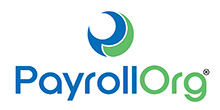District Court Invalidates Rule Raising 'White Collar' Salary Threshold
On November 15, 2024, a district court vacated and set aside the U.S. Department of Labor's (DOL) 2024 final regulations to increase the minimum salary
level for the Fair Labor Standards Act (FLSA) executive, administrative, professional, outside sales, and computer employee (EAP) or "white collar" exemptions [Texas v U.S. Department of Labor, No. 4:24-cv-499 (E.D. Texas, 11-15-24)].
Due to the court ruling, the increase in the overtime threshold scheduled for January 1, 2025, will not go into effect. The court also struck down the July 1, 2024, increase that previously went into effect, although many employers may
have already increased employees' salaries to comply.
DOL to Revisit Rule
On May 9, 2025, the 5th Circuit Court of Appeals granted the DOL's motion to stay its appeal of a 2024 district court decision about the white collar threshold [Flint Avenue v. U.S. Department of Labor, No. 25-10349 (5th Cir., 5-9-25)].
Previously, in an unopposed motion filed in April, the DOL had asked the court to hold its appeal in abeyance, stating the agency intended to "revisit" the rule. The DOL has not published further guidance.
Current Exemption Tests
Bona fide executive, administrative, professional, outside sales, and computer (collectively referred to as EAP) employees are exempt "white collar" employees under the FLSA. These employees
are not covered by minimum wage, overtime, and certain recordkeeping requirements of the FLSA and are commonly referred to as being exempt.
The three tests for determining exempt status measure the actual duties and responsibilities of the employee, not the job title. To fall within the EAP exemption, employees generally must:
(1) Be paid a salary, meaning that they are paid a predetermined and fixed amount that is not subject to reduction because of variations in the quality or quantity of work performed (the salary basis test);
(2) Be paid at least a specified weekly salary level (the salary level test); and
(3) Primarily perform executive, administrative, or professional duties, as provided in the DOL regulations (the duties test).
Salary Thresholds
The DOL confirmed that, for enforcement purposes, it is applying the 2019 rule's minimum salary levels. In general, employees earning less than $684 a week ($35,568 a year) are nonexempt and are
entitled to overtime pay, whether they are paid on an hourly or salary basis. Employees paid a salary above that threshold level must meet a duties test (i.e., perform executive, administrative, or professional duties, as provided in the DOL regulations)
to be exempt from overtime. Highly compensated employees (HCEs) paid more than $107,432 a year have to meet only one prong of one of the duties tests to qualify as exempt.
Employers may use nondiscretionary bonuses and incentive payments (including commissions) that are paid annually or more frequently to satisfy up to 10% of the standard salary level.
Links:
- Payroll Currently, Issue 6, Vol. 33, "5th Circuit Pauses 'White Collar' Ruling at DOL Request."
- Payroll Currently, Issue 3, Vol. 33, "Full 5th Circuit Will Not Revisit 'White Collar' Ruling."
- Payroll Currently, Issue 12, Vol. 32, "District Court Invalidates Rule for 'White Collar' Threshold Increase."
- Payroll Currently, Issue 10, Vol. 32, "5th Circuit Upholds DOL's Ability to Set Exempt Employee Salary Limits."
- Payroll Currently, Issue 7, Vol. 32, "Court Blocks DOL Salary Increases for State of Texas Workers."
- Payroll Currently, Issue 6, Vol. 32, "Employers Should Check Salary Thresholds Before July 1."
- Payroll Currently, Issue 5, Vol. 32, "DOL Finalizes Thresholds for 'White Collar' Exemption."
U.S. Department of Labor, Wage and Hour Division

